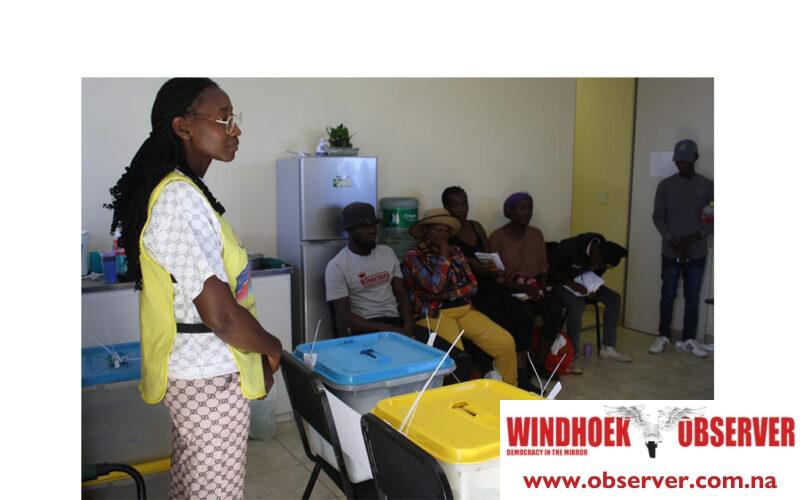Ester Mbathera
Leading political analysts have expressed concerns about the elections that finally concluded on Saturday evening
Analysts Rui Tyitende, Joseph Diescho, and Henning Melber have criticised the Electoral Commission of Namibia (ECN) and questioned the legitimacy of the process.
The trio called for urgent reforms, including the removal of ECN commissioners as well as the establishment of an electoral framework that ensures accountability, fairness, and public trust.
Tyitende explained the flaws in the appointment and accountability mechanisms of the ECN.
“There needs to be serious discussion about the involvement of the president in the appointment of commissioners. Can someone, appointed by the president, make a decision that goes against the interests of the president? By default, that person or official is conflicted,” he said.
According to Tyitende, President Nangolo Mbumba appears to be content with the shambolic performance of the ECN.
“So how can they possibly be held accountable for their failures? There is a serious trust deficit in the current leadership of the ECN, and I do not think they will resign out of good conscience. They will stay on despite the public having no confidence in their leadership. We are in trouble,” he said.
Currently, the commissioners are appointed by the president, a practice Diescho described as “a malpractice resulting from a sick system.”
Diescho argued that the elections were “not free, not fair, and not transparent,” and he recommended that parliament dissolve the ECN and set a new election date.
“On the strength of what we know now, the results of these elections should not be accepted as the real voice of the people. The ECN should be dissolved as a matter of urgency, and a new date must be determined by parliament for fresh elections before March 2025. This is, unfortunately, the price that must be paid for corruption,” he said.
The analysts agreed that Namibia is experiencing a broader crisis of leadership and governance.
Diescho observed that a “lack of leadership and political will” has undermined adherence to the Constitution and the rule of law.
He warned of consequences if systemic changes are not made.
“But it seems that things are not bad enough to cause a national outrage, or the opposition voices have been too meek. There is a leadership crisis in the land. Prayer, fasting and prophecies are not working. The country is likely to disintegrate if nothing changes drastically,” he said.
Melber stressed the need for all political parties, including the ruling party, Swapo, to prioritise democratic principles.
“Like all other parties, Swapo should have the interest to secure legitimacy and trust based on truly free and fair elections organised competently, with results accepted by all. This means another election should be the most obvious exit option to regain the image of a democratic society in which the electorate is entitled to decide by whom it wants to be governed,” he said.
Melber described the situation in the country as “a shame, a shamble, and an embarrassment.”
He noted growing regional polarisation, with Swapo retaining dominance in the north while urban centres turned against the ruling party.
“Namibia becomes increasingly divided between a northern region remaining under the firm control of Swapo as its stronghold and the other regions, in particular urban centres, in which voters have turned their backs on the former liberation movement. They have not returned to the party that they dismissed for lack of delivery. Swapo has lost its unchallenged dominance,” he said.




